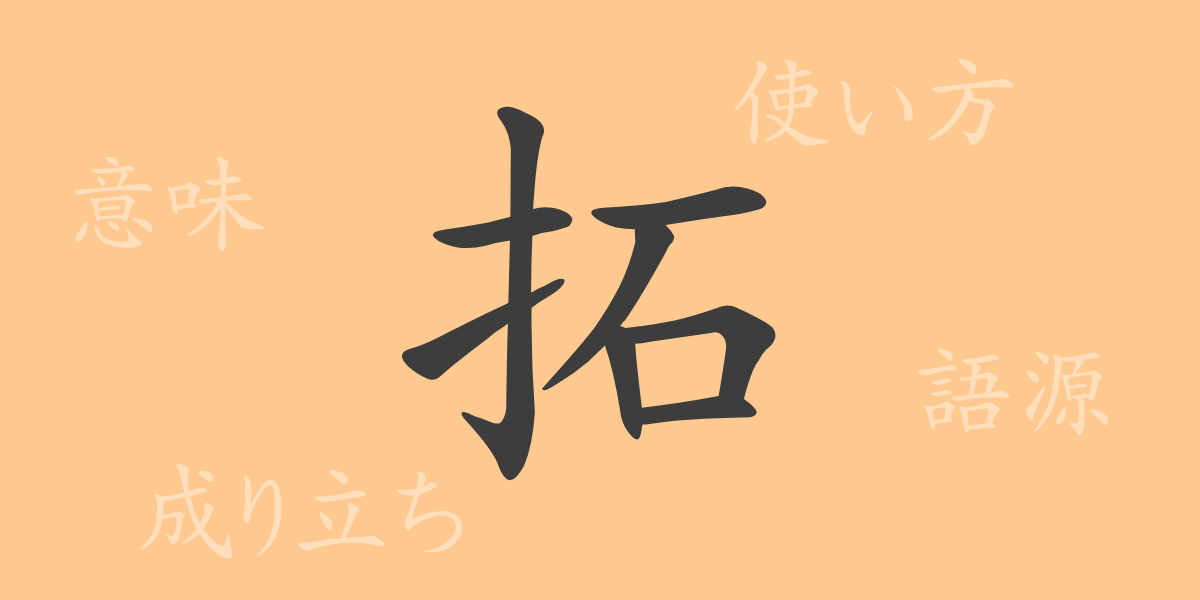The Japanese language is rich with Kanji, each bearing its own history and meaning. “拓” (たく) (taku) may not be frequently used in everyday life, but its presence is significant. This article delves into the Kanji “拓”, exploring its origins, modern usage, and its appearance in phrases and idioms. As we explore the world of “拓”, we aim to unveil its depth to our readers, keeping SEO in mind.
Origins of ‘拓’ (たく) (taku)
The Kanji “拓” originated in ancient China as a symbol representing the act of expanding land by hand. Its form combines the radicals for hand (扌), earth (土), and digging (石). Originally meaning to cultivate or develop land, “拓” has since evolved to encompass various derived meanings.
Meaning and Usage of ‘拓’ (たく) (taku)
“拓” is primarily used in terms such as “開拓” (かいたく) (kaitaku) meaning to pioneer or develop new land, and “拓く” (ひらく) (hiraku) indicating the act of pioneering into new fields. It also abstractly signifies expanding possibilities or forging new paths.
Readings, Stroke Count, and Radical of ‘拓’ (たく) (taku)
The Kanji “拓” incorporates important features in its structure and meaning:
- Readings: On’yomi (Sino-Japanese reading) is “タク” (taku), Kun’yomi (native Japanese reading) is “ひらく” (hiraku).
- Stroke Count: “拓” consists of 8 strokes.
- Radical: The radical is 扌 (てへん) (tehen).
Phrases, Idioms, and Proverbs Using ‘拓’ (たく) (taku) and Their Meanings
Idioms and phrases involving “拓” often reflect its literal meaning:
- 開拓者 (かいたくしゃ) (kaitakusha): A pioneer, someone who opens up new lands or fields.
- 拓く (ひらく) (hiraku): To open up new areas, literally or metaphorically.
- 未拓の地 (みたくのち) (mitaku no chi): Uncharted territory or undeveloped fields.
Summary on ‘拓’ (たく) (taku)
Understanding the history and meanings behind the Kanji “拓” enriches our appreciation for its usage and expression in Japanese. Derived from the act of land development, its various meanings and uses continue to symbolize the spirit of exploration and pursuit of new possibilities in our language.

























